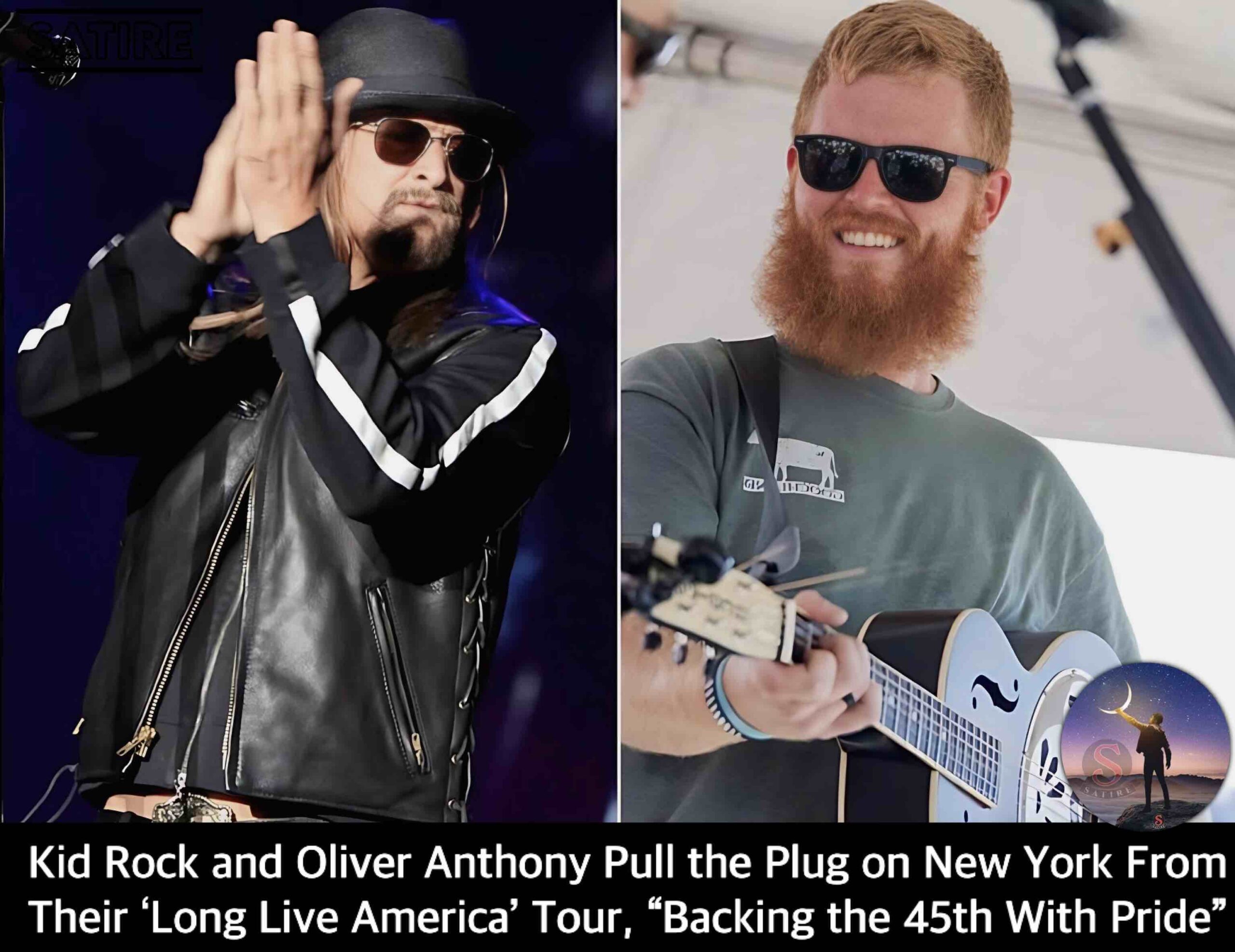Kid Rock and Oliver Anthony’s “Long Live America” tour has made a bold political statement by canceling all New York stops. This decision, fueled by their support for Donald Trump, sends a clear message beyond the world of music. It’s a move that resonates with political undertones, sparking discussions nationwide. The tour’s website leaves no room for interpretation: “We support 45.” This direct endorsement of the former president, coupled with criticism of New York’s treatment of him, marks a significant moment in the intersection of music, politics, and culture. By skipping New York—a state with over a dozen scheduled concerts—Kid Rock and Oliver Anthony are making a statement about their priorities and principles.
Beyond the political statement, this cancellation has real consequences. The “Long Live America” tour was not just a series of concerts; it was an anticipated economic boost and a patriotic celebration. The decision to skip New York deprives countless fans of a night of unity and musical joy, along with the economic benefits for venues and local businesses. The impact extends to venues across the state, each facing the loss of opportunity. Consider a hypothetical venue in upstate New York, ready to host the tour during its busiest season. The expectation of a night where music and patriotism unite, with sold-out crowds, local vendors benefiting, and the community coming together, now fades into disappointment.
This scenario highlights the broader impact on communities—venues had seen these concerts as a highlight, rallying local businesses in preparation for the influx of concert-goers. The economic and social effects of such cancellations are significant, affecting every aspect of the local economy and community spirit. Kid Rock and Oliver Anthony’s decision to stand with “45” by excluding New York from their tour is a story of loyalty, belief, and the powerful intersection of art and politics. It shows how artists use their platforms to express values and take stances that resonate beyond the music, sparking conversations about freedom of expression, the role of artists in politics, and the impact of such decisions on fans and local economies.
As the “Long Live America” tour continues without New York, it leaves a void not only in the schedules of music venues but also in the hearts of fans. It serves as a reminder of music’s power to unite or divide, uplifting or disappointing, depending on one’s perspective. Ultimately, the tour will be remembered for more than its performances. It will be a landmark in the ongoing dialogue about the intersection of culture and politics, a testament to the enduring impact of artists’ voices on American society.
As the tour moves forward without New York, it underscores the intertwined nature of music, politics, and personal convictions. And in this case, allegiance to a political figure has led to a significant, controversial decision. The repercussions of this choice will be felt, prompting reflections on patriotism, artistic expression, and navigating the American cultural landscape. Indeed, as we consider the implications of this decision, we’re reminded of music’s power to provoke, unite, and sometimes, divide. In the spirit of the tour’s name, “Long Live America,” may the conversations it sparks lead to deeper understanding and respect for the diverse beliefs and values that define us.


